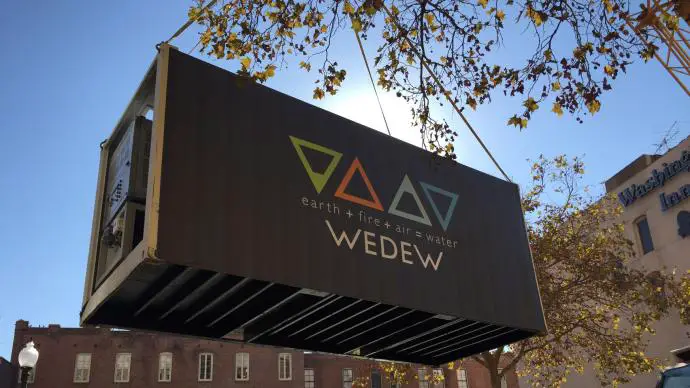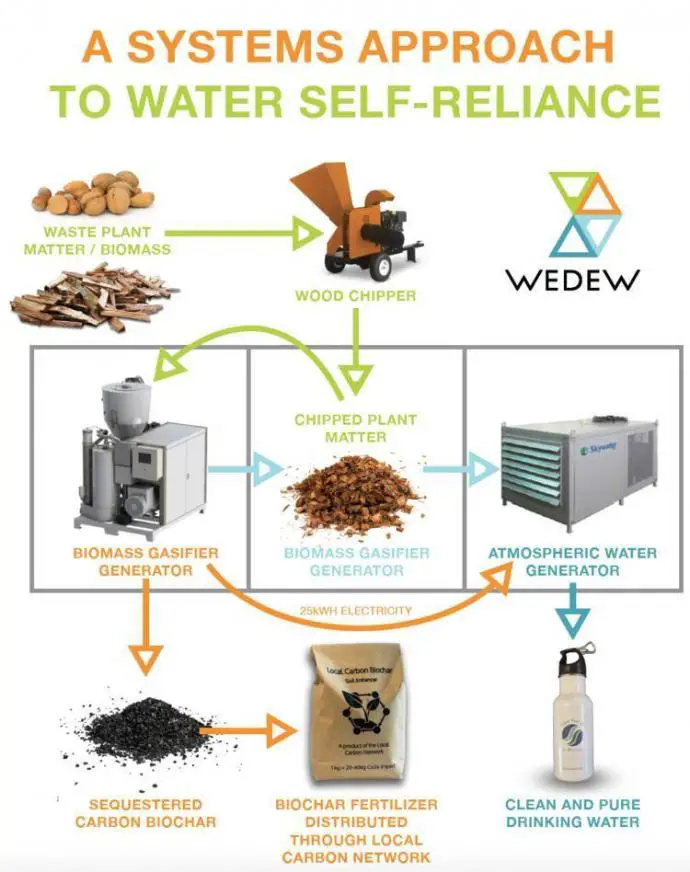This Water-Out-Of-Thin-Air Device Won A $1.5 Million Dollar Prize
Tags: opinion

The Tata Group and Australia’s Aid Program powered a contest that challenged young scientists to come up with environment-friendly solutions to combat the global water crisis. In short, they asked them to create water from thin air in 2016.
The objective was clear- creating more than 2000 liters of water per day with a piece of machinery that uses clean energy but for a price that is less than 2 cents per liter. Out of the hundred teams that entered, Skywater Alliance- Hertz and Groden’s team, won because it showed the most promising results with their creation- WEDEW.
Also Read: New Research Suggests Pesticides Damage The Brains Of Baby Bees
WEDEW or wood-to-energy deployed water system, quite literally, forms clouds in a container. It functions with two parts. The first part is a generator called Skywater. This generator was co-created by Groden and works the same way a cloud does. It cools and condenses the warm air and stores them for drinking.
The second part is a biomass gasifier. This is the part that gives WEDEW the energy required to complete the process. It uses inorganic materials like coconut shells and woodchips. By vaporizing these, the ideal hot and humid conditions are created for the Skywater to fulfill its function.

Source: Skysource.org
The harmony of these two parts brings to us WEDEW. According to scientists, it is also a carbon negative device which means it will utilize more carbon than it will produce, which is a big deal when the world is trying to deal with many global issues related to carbon emissions.
David Hertz and Rich Groden walked away with 1.5 million dollars for creating a design- WEDEW- that can cater to the water needs of 100 people. But they were not the only winners. The Hawaiian Team- JMCC WING also took home 150,000 dollars. Theirs was a device that worked on a wind-energy system to extract atmospheric water.
https://www.instagram.com/p/BTb6Mnwh3Og/?utm_source=ig_web_copy_link
Also Read: Hungary Vows To Plant 10 Trees For Every Baby Born
These designs have great global implications. According to UNICEF’s 2017 report, about 2.1 billion people do not have proper access to drinking water. This affects their rights as human beings. Hertz and Groden, however, go beyond this crisis.
According to Hertz, they are planning to work with various NGOs to implement their systems in areas of need. But apart from that, they are looking for a way to install these in disaster-prone areas to access during the situations when there is an energy or water crisis.
With the planet Earth in a ‘save environment’ uproar, these are the machines we need to go into war. To save us and our future generations.

Leave Comment: